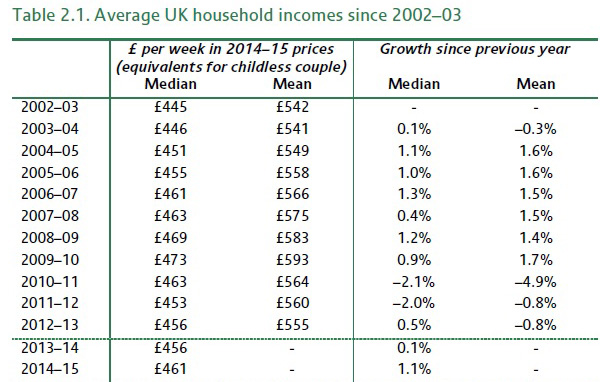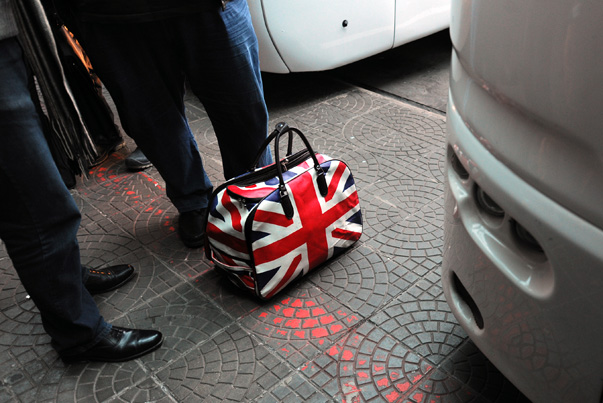David Cameron and Ed Miliband will be making their big pitch to voters tonight in the first big set-piece TV election debate.
The Prime Minister and the Labour leader won’t actually be debating with one another, after Mr Cameron ruled out a head-to-head confrontation.
Instead, both men will be grilled by Jeremy Paxman in separate interviews, and face questions from a live studio audience.
Of course we don’t know what they’re going to say, but Labour and the Conservatives have a habit of deploying the same arsenal of dubious claims over and over again.
Here are some of the lies, half-truths and evasions that might come up tonight.
VAT and National Insurance
The biggest movement in the last few days. Labour had been accusing the Conservatives of planning a VAT hike in the next parliament.
Mr Cameron appeared to shoot that one down in the last Prime Minister’s Questions of this parliament, explicitly ruling out a VAT rise.
But Mr Miliband may bring up the fact that Mr Cameron said the Tories had “absolutely no plans to raise VAT” before the last election – before announcing in the very first budget of the coalition that it would rise from 17.5 to 20 per cent.
It’s not the only time Mr Cameron has pulled a policy U-turn or broken a promise – as we found in a recent FactCheck.
Mr Cameron in turn challenged Labour to rule out a National Insurance rise – which Shadow Chancellor Ed Balls duly did.
Both parties are still yet to fill in much of the detail of how they would go about reducing the deficit in the next parliament.
Cutting the NHS?
Another key Labour attack line that has emerged in the last couple of weeks is the assertion that the Conservatives have a “secret plan” to cut the NHS.
But the Tories have explicitly said they would protect spending on the health service in real terms.
Institute of Fiscal Studies (IFS) figures suggest the coalition has protected the NHS budget in real terms over the last five years, something Labour did not promise to do before the last election.
Labour say they would spend billions more on health than the Conservatives in the next parliament – but that comes with a catch, and neither party has agreed to reach the £8bn target NHS England says the NHS needs.
Worse cuts to come?
Ed Miliband has seized on forecasts from the Office for Budget Responsibility and the IFS that the latest Treasury spending plans set out in this month’s budget imply steeper cuts to government departments than anything we have seen so far.
But this only tells half the story. George Osborne has made it clear that he would not implement cuts of that scale. Instead, he plans to cut back on welfare spending and raise money from cracking down on tax avoidance.
It’s fair to say that the chancellor has not spelled out exactly how this would be achieved, and the Labour leader is not the only sceptic.
When is a cut not a cut?
The Conservatives have got form when it comes to claiming they are protecting various budgets or spending more, when they are actually making a cut.
Over the last five years Mr Cameron has said the government has given HMRC an “extra £900m” to combat tax dodgers, but actually the taxman has seen his total budget reduced under the coalition.
He has stated the government is “not cutting benefits for disabled children” when less severely disabled children do face a cut in payments.
And he has promised that schools funding will not be cut under the Conservatives – when it will fall in real terms.
The cost of living crisis
Labour have been making much of the fact that real wages have fallen sharply under the coalition, leaving the average worker around £1,600 a year worse off.
There’s no dispute about this, although inflation began to outpace earnings growth under Labour, and wages and income are not the same things.
The IFS recently found that average household incomes – including benefits, pensions and other sources of income – are set to return to their pre-crash levels this year.
Arguably, there’s no clear win for either party here. Incomes have recovered more slowly than after any other recession in recent history, but families may not be feeling the pinch as much as Labour’s rhetoric suggests.
Ultimately, it boils down to who you are. IFS figures suggest that pensioners have been relatively protected from the effects of the recession, compared to working people, especially young adults.
And middle to higher-income earners have done better than the poorest or the very richest thanks to tax and benefits changes made by the coalition.
The jobs miracle
Some economists think slow wage growth and low unemployment are two sides of the same coin: you can have one or the other.
Contrary to predictions made by one E Balls in 2010, private sector job creation has outweighed the public sector jobs cut by the coalition, giving the UK some of the best employment figures in Europe.
Sceptics often say that the quality of jobs has fallen, with zero-hours contracts, part-time and temporary jobs and self-employment explaining the rise in the employment figures.
It’s true that some of these things are more prevalent now, but not enough to explain the rise in employment.
Immigration
Mr Mililband may well mention the fact that the Conservatives failed to meet their target of reducing net migration to the tens of thousands.
It’s also true to say that Labour presided over the biggest increase of immigration to these islands in modern history.
But in purely economic terms, immigration, particularly from within the European Union, may well not be a bad thing.
Cameron & Miliband: The Battle for Number 10 is on tonight at 9pm on Channel 4 – @FactCheck will be tweeting live throughout.








